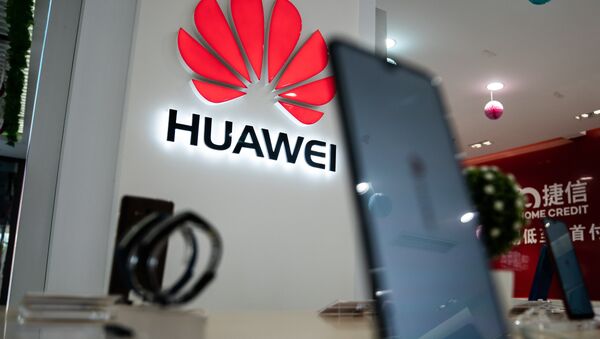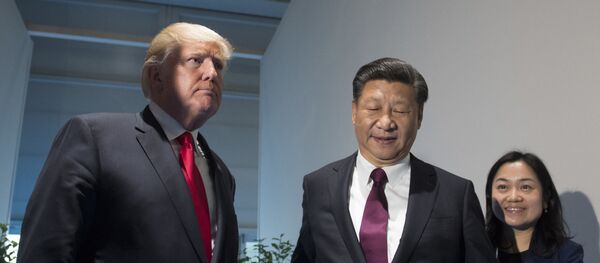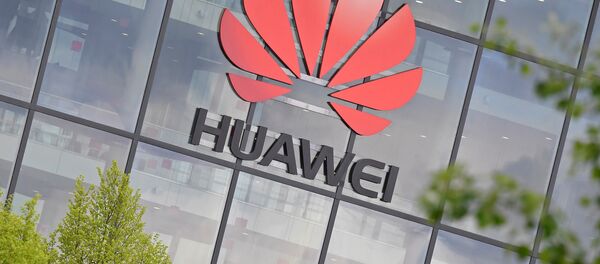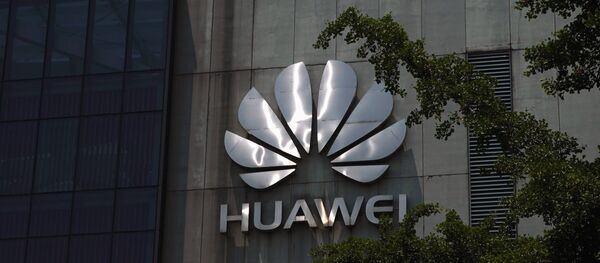The US went ballistic on Huawei Technologies Co. by blacklisting it and its 68 affiliates in the US on 16 May, urging IT companies across the world to sever business ties with the Chinese telecom giant over security concerns. Major American tech companies like Qualcomm, and Intel immediately halted cooperation with Huawei, while Google blocked Huawei's access to Android updates.
To somehow sweeten the bitter pill, the US Commerce Department issued a 90-day waiver for the Chinese tech giant allowing it to purchase hardware and software services from US companies for maintenance purposes.
"Huawei will be working closely with the Chinese government to get the US to back down", says Kevin Dowd, a British professor of finance and economics. "Beyond that, assuming the US does not back down, the firm will have to take a massive hit as its exports plummet. But they will then be working to develop other markets as a substitute, and long-term they will want to develop their own independent supply chains which would be less vulnerable to disruption by the US government".
However, the scholar admitted that "to create a competitive alternative to Android will take some time".
For his part, Benjamin Cavender, principal of the Shanghai-based China Market Research Group, drew attention to the fact that "Huawei essentially has the option of using open source Android, they would not be paying Google for this OS so it would be allowed, or moving to a different OS that they or another company develops".
The businessman highlighted that the Chinese tech giant is likely to see "strong sales domestically of its mobile devices", adding that "at present the lack of Google services is unlikely to impact phone sales in their home market as they are already not allowed by the Chinese government".
Apart from the 90-day waiver, it's likely that Huawei has "stockpiled parts for at least a year for the development of its 5G networks", Cavender suggested adding that in the near term the tech company's actual business operations "should be ok".
Trump's Ban Deals a Blow to Huawei's International Business
While Huawei's domestic sales are unlikely to plummet, the company's global business operations could be severely hit, the observers say.
"If the US goes through with a full ban on sales, it will hurt Huawei's competitiveness for several years, at least. That will not matter in China, where competition is limited, or in the US, where Huawei has little business. But it will matter to Huawei internationally", Derek Scissors explained.
On 20 May, Google announced that some of its services, such as the Play Store and Google Play services, will be working on existing Huawei smartphones, which does not necessarily mean that they will function on new devices.
For Huawei users' questions regarding our steps to comply w/ the recent US government actions: We assure you while we are complying with all US gov't requirements, services like Google Play & security from Google Play Protect will keep functioning on your existing Huawei device.
— Android (@Android) 20 мая 2019 г.
Meanwhile, an increasing number of international tech companies are suspending cooperation with Huawei, under pressure from Washington. The Trump administration has cracked down on Huawei since 2018 citing the company's alleged ties with the Chinese government, something that the tech giant vehemently denies.
Observers Pin Hopes on Xi-Trump G20 Meeting
The only thing the Chinese tech giant could pin its hopes on is the settlement of the Sino-American trade war, according to the observers.
It is expected that US President Donald Trump and Xi Jinping will meet at the next G20 summit in late June. However, prior to the potential meeting the US president signalled that he had already ordered to develop a plan to increase trade pressure on China and prepare new tariffs.
"There is always hope that the two leaders can come to a reasonable agreement, but with unpredictable ‘tariff man' Trump you never know", Professor Dowd said, commenting on the new US tariffs. "He doesn't seem to appreciate that if the US ‘retaliates' against what it perceives as ‘unfair' trade practices by other countries, then those other countries will retaliate in turn, especially if those other countries are China or the EU".
Nevertheless, Benjamin Cavender still hopes the trade war will be resolved, admitting that "it does not seem like strong progress is being made at this point and the discussion is becoming more political by the day".
For his part, Derek Scissors has no illusions about the upcoming G20 meeting, suggesting that at least Trump and Xi "can reinvigorate the [trade] negotiations".
As US Treasury Secretary Steven Mnuchin announced on 22 May, Washington may impose new tariffs on $300 billion worth of Chinese goods in another 30 or 45 days.
"I'm still hopeful we can get back to the table. The two presidents will likely see each other at the end of June", Mnuchin said at a hearing before the US House of Representatives Financial Services Committee.
The US disrupted a trade truce — concluded by Washington and Beijing in December 2018 — on 10 May after the Sino-American trade negotiations stalled. The US president announced a tariff hike from 10 to 25 percent on $200 billion in Chinese products. Beijing responded with similar measures taxing $60 billion worth of US goods.
The Sino-American tariff spree erupted in March 2018 when Donald Trump announced unilateral tariffs on foreign imports of steel and aluminium.
The views and opinions expressed by the speakers do not necessarily reflect those of Sputnik.





